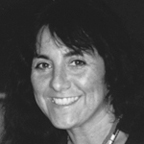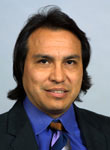 28 April 2008 MEDIA PERSPECTIVES 8th & 9th Meetings SEVENTH SESSION UN PERMANENT FORUM ON INDIGENOUS ISSUES OFFICIAL WEB SITE AUDIO BROADCASTS OF THE 7TH SESSION OF THE UN PERMANENT FORUM Coming Soon
The dbn.tv team in Canada and Spain wishes to thank the UN Audio Library and the Recording Room for their collaboration in making these sessions available around the world UN NEWS SERVICE - INDIGENOUS PEOPLES UN PRESS RELEASES AND MEDIA COVERAGE Economic and Social Council
PERMANENT FORUM ON INDIGENOUS ISSUES EXAMINES
VALUE OF INCREASED COLLABORATION WITH HUMAN RIGHTS COUNCIL UNDER
UNIVERSAL REVIEW MECHANISM Hearing from delegates on topics ranging from industrial encroachment of indigenous lands to the question of racial discrimination against native peoples, members of the Permanent Forum on Indigenous Issues today examined the value of increased collaboration with the Human Rights Council under its universal review mechanism -- established by the Council to assess the human rights situation of United Nations Member States -- and called for indigenous rights to be prominently addressed at those reviews.
In his last address to the Forum before ending his tenure on 1 May,
Rodolfo Stavenhagen (Mexico), the Human Rights Council's Special
Rapporteur on the situation of human rights and fundamental freedoms
of indigenous peoples, said he saw "great possibilities" in applying
the recently-adopted Declaration on the Rights of Indigenous Peoples
as a framework for the promotion and protection of indigenous
rights.
JAMES ANAYA said many of the questions being asked
addressed the "implementation gap" between the Declaration and the
rights and lives of indigenous peoples on the ground. It was one
thing to have the tremendous achievement of the Declaration, but
that achievement would matter little if the real-life situation of
indigenous peoples did not change. Nonetheless, the Declaration was
the primary instrument for promoting the rights and freedoms of
indigenous peoples, and as such, it was a guide for the United
Nations and its affiliated agencies, as well as for Member States.
Learn More about the UN Declaration on the Rights of Indigenous
Peoples
Background
Special Rapporteur
Ida Nicolaisen presented her report on the
structures, procedures and mechanisms that currently existed, or
that might be established, to effectively address the human rights
situation of indigenous peoples. The study had been conducted with
Special Rapporteur Wilton Littlechild. |
|
Intro 2008 Opening 1st & 2nd Meetings | 3rd and 4th Meetings | 5th Meeting | 6th and 7th Meetings | 8th and 9th Meetings Kari-Oca Revisited |
dbn@dialoguebetweennations.com
Copyright Natalie Drache 1999






